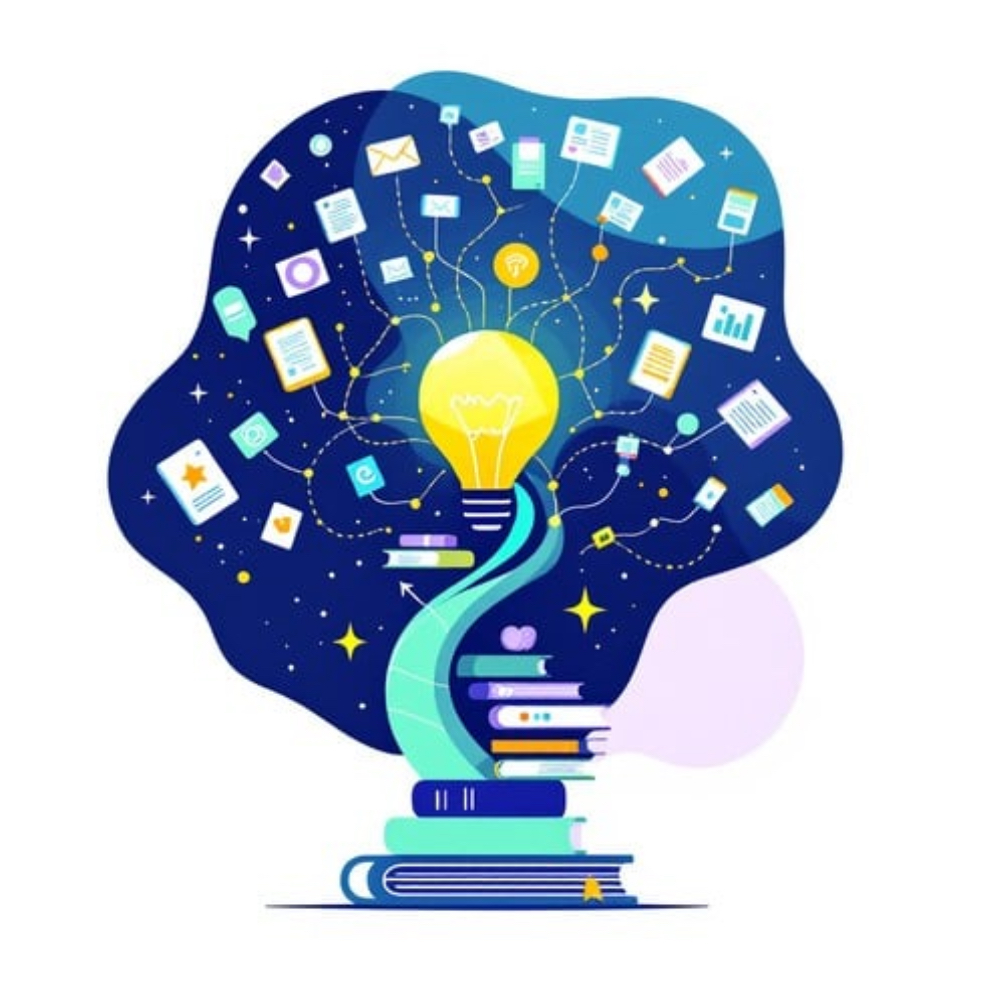
Knowledge Opens Brighter Future
The assertion that "knowledge is the bridge to a better place" encapsulates an optimistic view of epistemology as a teleological force driving human progress. While this axiom resonates with Enlightenment ideals of rationality and positivist faith in empirical advancement, its universality and ethical neutrality warrant rigorous scrutiny.
The premise assumes knowledge is inherently a "bridge"—a unidirectional conduit to improvement—yet this conflates 'knowledge acquisition' with 'moral or utilitarian progress'.
Epistemologically, knowledge exists on a spectrum from propositional (knowing ‘that’) to procedural (knowing ‘how’), but its application is contingent on sociopolitical and ethical frameworks. For instance, the Manhattan Project’s scientific breakthroughs in nuclear physics generated knowledge that enabled both energy production and existential threats.
Similarly, advancements in algorithmic machine learning have simultaneously democratized information and exacerbated surveillance capitalism. The statement’s weakness lies in its failure to distinguish between knowledge as a ‘tool’ and the ‘intentionality’ governing its use.
As Popper (1963) argued in ‘Conjectures and Refutations’, knowledge devoid of critical falsifiability risks becoming dogma, undermining its purported role as a "bridge" to improvement.
The metaphor of a "bridge" presupposes equitable access to knowledge, an assumption invalidated by systemic inequalities in education, technology, and information distribution. Foucault’s (1975) critique of knowledge-power nexuses illustrates how dominant epistemologies often reinforce hegemonies rather than dismantle them.
For example, colonial-era "scientific racism" weaponized pseudoscientific knowledge to justify oppression, while contemporary digital divides exclude marginalized communities from the purported "better place" of technological utopianism.
Even when knowledge is accessible, its interpretation is mediated by cultural and ideological lenses. The replication crisis in psychology and medicine reveals how institutional biases distort knowledge production, rendering the "bridge" unstable.
Thus, the statement neglects the structural barriers that transform knowledge from a communal resource into an instrument of stratification.
Neuroscientific and behavioral economic research undermines the assumption that knowledge directly translates to improved outcomes. The ‘value-action gap’—observed in phenomena like climate change denial despite scientific consensus—demonstrates that knowledge alone cannot overcome cognitive biases (e.g., hyperbolic discounting, status quo bias).
Similarly, the Dunning-Kruger effect illustrates how metacognitive deficits distort self-assessment, rendering knowledge acquisition a nonlinear and often counterproductive process.
Neuroplasticity studies further show that entrenched belief systems resist revision even in the face of contradictory evidence, as seen in vaccine hesitancy. These findings suggest that the "bridge" metaphor oversimplifies the psychocultural mechanisms that mediate knowledge integration into behavior or policy.
From a systems perspective, the statement ignores the second-order effects of knowledge proliferation in interconnected societies.
The ‘Collingridge dilemma’ posits that the long-term impacts of technological knowledge become evident only after systemic integration, at which point control is often forfeited. Social media algorithms, for instance, were initially hailed as knowledge-sharing tools but now amplify misinformation and polarization.
Similarly, the Green Revolution’s agricultural knowledge boosted crop yields but also triggered ecological degradation and socioeconomic disparities. Complex adaptive systems theory (Holland, 1995) emphasizes that linear cause-effect models—such as "knowledge → betterment"—fail to account for emergent properties and feedback loops. Thus, knowledge may construct a "bridge" to unintended destinations, destabilizing the very notion of a “better place.”
The statement’s teleological optimism neglects existential risks inherent in certain knowledge domains. Bostrom’s (2002) work on existential risk highlights how advances in artificial intelligence, biotechnology, and nanotechnology could yield catastrophic outcomes if mismanaged.
The Asilomar Conference on recombinant DNA (1975) exemplifies conscious efforts to align knowledge with ethical guardrails, but such frameworks remain reactive and politically contested. Moreover, the ‘dual-use dilemma’—wherein knowledge serves both beneficial and harmful purposes—renders the "bridge" analogy ethically incomplete.
For example, CRISPR-Cas9 gene editing holds therapeutic promise but also enables bioterrorism and eugenics. In this light, knowledge resembles less a bridge than a labyrinth, requiring navigational wisdom that the original statement does not address.
The assertion "knowledge is the bridge to a better place" is neither universally valid nor inherently false. Its validity depends on contextual factors: ‘whose knowledge’, ‘for whom’, and ‘regulated by what norms’.
To salvage its aspirational core, the statement must be refined through a critical realist lens. Knowledge becomes a "bridge" only when coupled with equitable access, ethical governance, and systemic humility.
As Habermas (1968) argued in ‘Knowledge and Human Interests’, emancipatory knowledge must transcend technical rationality to engage with moral-practical reasoning. In an era of anthropogenic climate change and AI existentialism, the bridge’s stability hinges not on knowledge alone but on the collective wisdom to wield it justly.
Thus, the original statement, while rhetically compelling, demands revision to reflect the dialectical interplay of knowledge, power, and responsibility in shaping human futures.